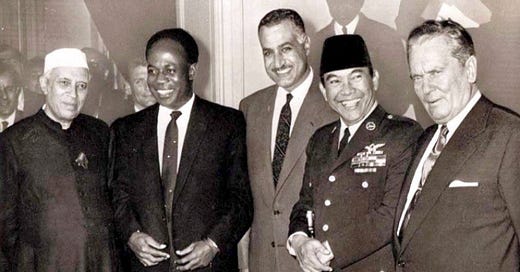Post-colonial truth is empirical, not personal or tribal
The guidelines of the Constitution of Knowledge
Since the 1955 conference in Bandung, the peoples and movements of the Third World have been seeking to emancipate themselves from colonial domination, a formidable and ongoing task, given the capacity of the global powers to invent neocolonial structures of domination in the context of formal recognition of the political independence of nations. We live today in a world in which the United States and the European ex-colonial powers pursue imperialist policies, seeking to preserve their economic and political advantages in a neocolonial world-system. But the Third World has persisted in its alternative vision. Initially during its classic period of 1955 to 1983, followed by a period of renewal from 1994 to the present, the Third World movement of national and social liberation has formulated the principles that must guide a new international economic order and an alternative more just, democratic, and sustainable world-system.



